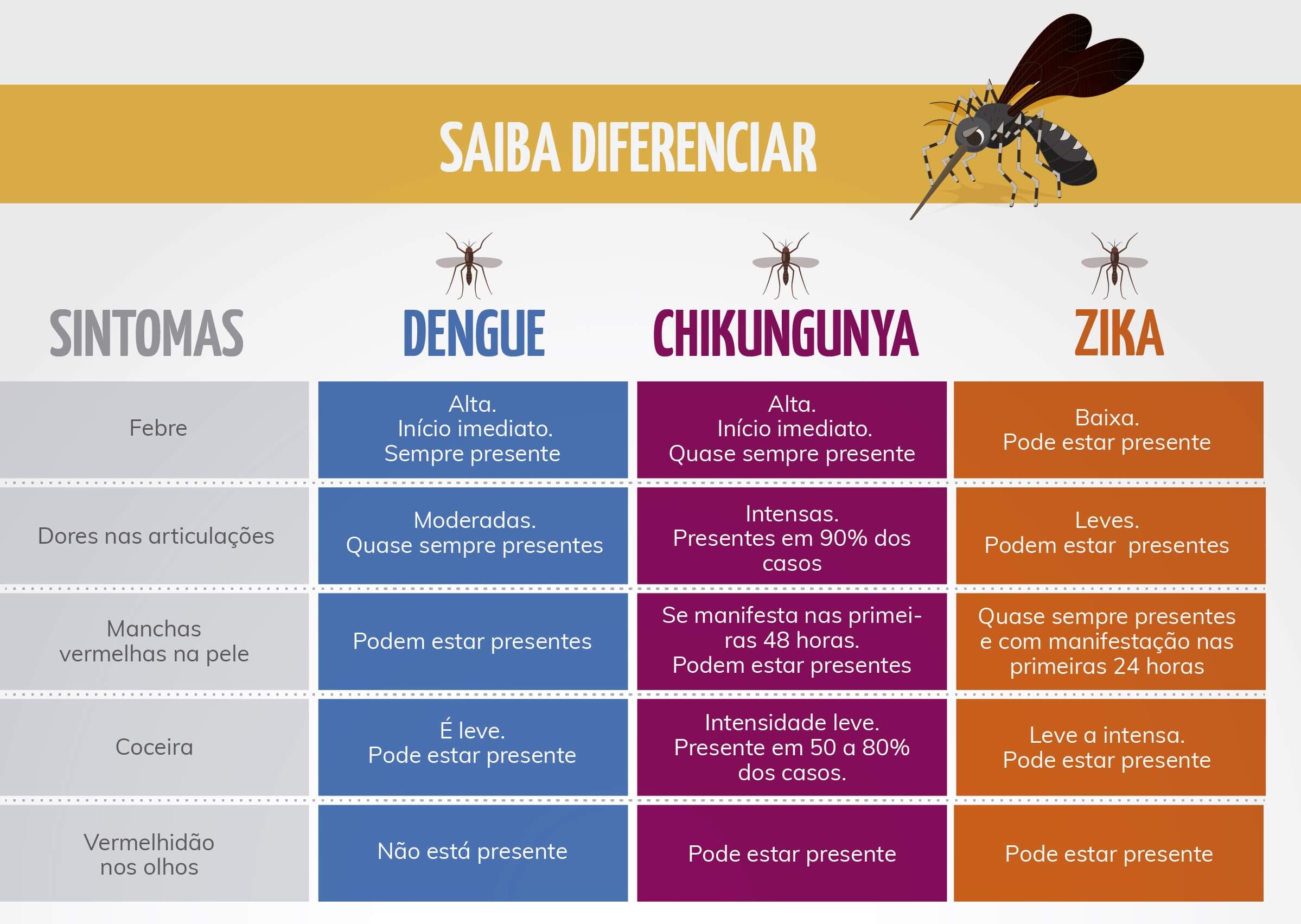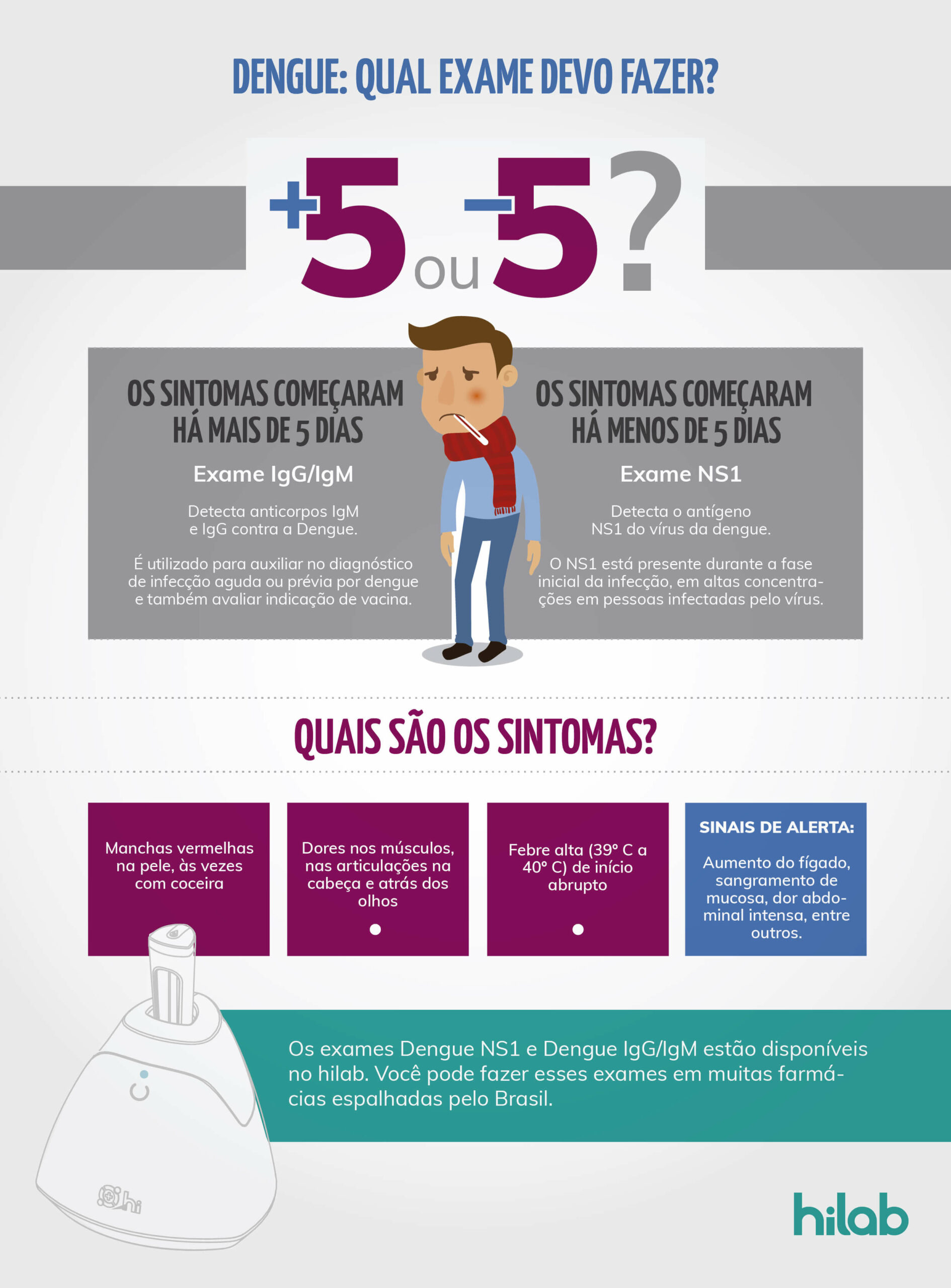Tudo sobre dengue: Entenda os riscos para quem já teve
Hilab | 06 jun 2019

Você sabia que a incidência de dengue tem aumentado drasticamente nas últimas décadas? Estima-se que cerca de 40 a 50% da população mundial esteja em áreas de risco para o desenvolvimento da doença, que são zonas tropicais, subtropicais e, mais recentemente, temperadas. O que você sabe sobre a dengue?
Confira, no artigo a seguir as principais informações sobre a doença e descubra o motivo pelo qual ela é mais perigosa para quem já foi infectado.
Fique atento! O que é a Dengue?
A dengue é uma arbovirose, ou seja, uma doença viral transmitida por um artrópode, filo no qual se incluem os insetos. Esta doença é transmitida através da picada do mosquito Aedes aegypti, que possui em sua saliva substâncias anticoagulantes que são injetadas na corrente sanguínea do paciente quando o inseto está se alimentando. A saliva do mosquito é rica em vírus e será a responsável pela infecção do paciente.
Já teve dengue? Atenção!
Existem 4 diferentes sorotipos de dengue e as infecções subsequentes são mais graves que as prévias. O risco de evolução para dengue hemorrágica aumenta drasticamente se o paciente é infectado mais de uma vez pelo vírus, por este fato é importante ser vacinado após a primeira infecção.
Se você já teve a doença, o risco de complicações é muito maior porque o risco de evolução para dengue hemorrágica aumenta.
É importante ressaltar que a vacina só pode ser aplicada naqueles que já tiveram dengue alguma vez na vida. Para aqueles que nunca foram infectados, há outras formas de prevenção.
Como posso saber se posso tomar a vacina?
Uma vez que a vacina da dengue só pode ser aplicada em quem já teve a doença, você deve fazer um exame de dengue IgG/IgM. Este exame é essencial para auxiliar no diagnóstico e avalia suas Imunoglobulinas G e M (IgG e IgM), indicando se você está infectado ou se algum dia já teve a doença.
A IgM é um anticorpo de fase aguda, ou seja, indica uma infecção aguda ou muito recente. A IgG é o anticorpo de memória imunológica, o paciente foi infectado alguma vez, mas evoluiu para a cura. A pessoa que tiver a IgG positiva (reagente) deve receber a vacina para evitar uma nova infecção.
Como prevenir a doença?
O mosquito é capaz de colocar seus ovos em mínimas quantidades de água, até tampinhas de garrafas podem ser um criadouro.
Evitar que o inseto se crie é a melhor maneira de combatê-lo, por isso deve-se evitar deixar água parada a qualquer custo, principalmente em áreas onde há maior incidência da doença.
Além disso, também é importante prevenir o contato com o mosquito adulto, o que pode ser feito por meio do uso de repelente de insetos, da tela mosquiteira, dos inseticidas, de roupas longas, entre outras precauções.
Quais são os sintomas da dengue? O que você precisa saber
Após a picada do inseto, a infecção torna-se sintomática após 4 a 10 dias, aproximadamente. A doença pode ser assintomática (sem sintomas) e muitas pessoas não sabem que a tiveram. Entretanto, naqueles que manifestam os sintomas, estes duram entre 2 e 7 dias. Além disso, a dengue é mais perigosa para idosos e gestantes.
Os sintomas de dengue são semelhantes aos de outras infecções virais, como a gripe e, até mesmo, outras arboviroses, como a Zika e a Chikungunya, podendo confundir o paciente.
Dentre os sinais mais comuns estão: febre alta – podendo atingir 40ºC, dor de cabeça, dor atrás dos olhos, dores musculares, principalmente na região lombar, em braços e pernas, dor nas articulações, normalmente em joelhos e ombros, náuseas e vômitos, manchas avermelhadas em face, tórax e regiões articulares associadas ou não a prurido, além de fraqueza e letargia.
Confira a tabela abaixo e saiba diferenciar os sintomas das arboviroses:

Se você está apresentando alguns desses sintomas e acha que pode estar com dengue, você pode procurar a farmácia mais próxima para fazer um exame no Hilab.
Caso você esteja com sinais da infecção há menos de 5 dias, a avaliação deve ser realizada por meio do exame de Dengue NS1 Hilab. Este teste detecta frações do vírus no sangue do paciente e é o exame ideal para ser realizado no início da infecção.
Os sintomas já duram mais de 5 dias? Não tem problema! Você pode realizar o exame de Dengue IgG/IgM Hilab já explicado anteriormente.
Como proceder após o resultado do exame?
Se você realizou o exame de Dengue NS1, ou seja, está com sintomas há menos de 5 dias, e o resultado veio reagente (positivo), não se preocupe. Em qualquer exame existe a possibilidade de falsos positivos e falsos negativos, por este motivo é indicada a realização de um teste confirmatório, por meio de uma metodologia diferente.
O mesmo raciocínio é utilizado para o exame de dengue IgM/IgG. No caso de um resultado reagente, é importante que o paciente seja submetido a um exame confirmatório, também por outra metodologia. E, se o seu resultado foi não reagente (negativo), porém existe alta suspeição de Dengue, lembre-se da possibilidade dos falsos negativos e repita o exame.
Ainda está na dúvida a respeito dos nossos exames? Dê uma olhadinha na imagem abaixo e, caso ainda tenha alguma pergunta a fazer, pode entrar em contato com a gente pelo chat!

Agora que você já aprendeu tudo sobre a doença aproveite para curtir o hilab nas redes sociais!
Medscape. Dengue. Disponível em: <https://emedicine.medscape.com/article/215840-overview>. Acesso em: 14 de maio de 2019.
Medscape. Dengue Vaccine. Disponível em: <https://reference.medscape.com/drug/dengvaxia-dengue-vaccine-1000308>. Acesso em: 14 de maio de 2019.
Ministério da Saúde. Dengue: causas, sintomas, tratamento e prevenção. Disponível em: <http://portalms.saude.gov.br/saude-de-a-z/dengue>. Acesso em: 14 de maio de 2019.
Ministério da Saúde. Dengue: Aspectos Epidemiológicos, Diagnóstico e Tratamento. Disponível em <http://bvsms.saude.gov.br/bvs/publicacoes/dengue_aspecto_epidemiologicos_diagnostico_tratamento.pdf>. Acesso em: 14 de maio de 2019.

Hilab
Somos especialistas em Point-of-Care Testing. Criamos dispositivos para exames PoCT, realizados com apenas algumas gotas de sangue e resultados entregues em poucos minutos. Nosso propósito é democratizar o acesso à saúde.

Deixe um comentário